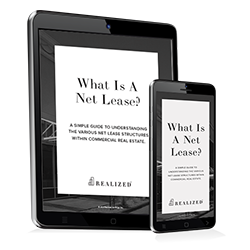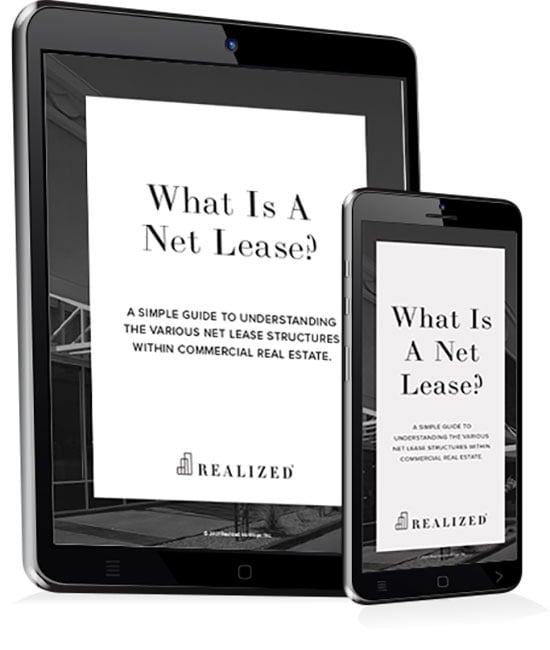
Two major aspects matter in NNN lease investments: the property type and the tenant who occupies the asset. The latter is critical because a quality tenant helps ensure stability and predictable income.
One metric investors use when selecting tenants is credit rating, which reflects a tenant's financial strength. Below, Realized 1031 shares how credit ratings of tenants impact triple net lease investments to help you understand the nuances and make informed selections. Keep reading to learn more.
What Are Triple Net Lease Credit Ratings?
For many investors, their first encounter with credit matrices is the credit score. The credit rating functions the same way but applies to companies and organizations. The rating is an assessment of a company’s financial health and ability to meet debt obligations. Third-party companies provide these scores, with Standard & Poor’s (S&P) and Moody’s among the more well-known firms offering this service.
- Investment Grade (AAA to BBB-): Indicates strong financial stability and a low risk of default.
- Non-Investment Grade (BB+ and below): Suggests higher risk, with more vulnerability to market shifts or financial stress.
Importance of NNN Credit Ratings for Your Investment
A credit rating provides a quick measure of a tenant's reliability. This is especially significant given how the tenants’ ability to pay directly affects the investment’s cash flow and overall value. As such, working with tenants carrying investment-grade ratings can provide the following benefits.
- Lowered Risk: Tenants with a high credit rating are usually backed by operators with robust financial capabilities. Combined with brand recognition, these characteristics make the tenants low risk.
- Better Financing Terms: Properties leased to strong tenants often qualify for better financing terms since lenders recognize the reduced risk.
- Resale Value: If you need to resell the property before the lease term ends, you may achieve a higher resale value since prospective buyers will find the tenant a safe bet.
- Lease Security and Stability: Tenants with higher credit ratings, thanks to their financial backing and robust business models, are less likely to default. This benefit ensures that the lease remains stable for the duration of the net lease agreement or contract.
Long-term Implications for Investors
Credit ratings aren’t static, and the companies mentioned may provide lower or higher ratings based on the tenant’s performance. Stable or higher ratings are, of course, the preferred outcome since these would mean stable cash flow and increased market value of the NNN property. However, lower credit can diminish the asset’s value and even heighten the possibility of tenant default.
Planning for this scenario starts with the selection of the tenant. Typically, national tenants with stable or improving credit outlook are your best chance. This strategic choice mitigates risk and protects the long-term value of your investment.
Wrapping Up: Basics of NNN Credit Ratings
During the selection of tenants for an NNN investment, the credit rating is a critical metric to look into. This rating provides investors and landlords with insights into a tenant’s financial health and its impact on risk, financing options, and property values. Choosing ones with high credit ratings is one way to achieve peace of mind and confidence for investors, as there is a higher chance of lease stability and consistent returns.
Sources:
https://www.spglobal.com/ratings/en
https://www.investopedia.com/terms/c/creditrating.asp
https://www.investopedia.com/terms/t/triple-net-lease-nnn.asp



